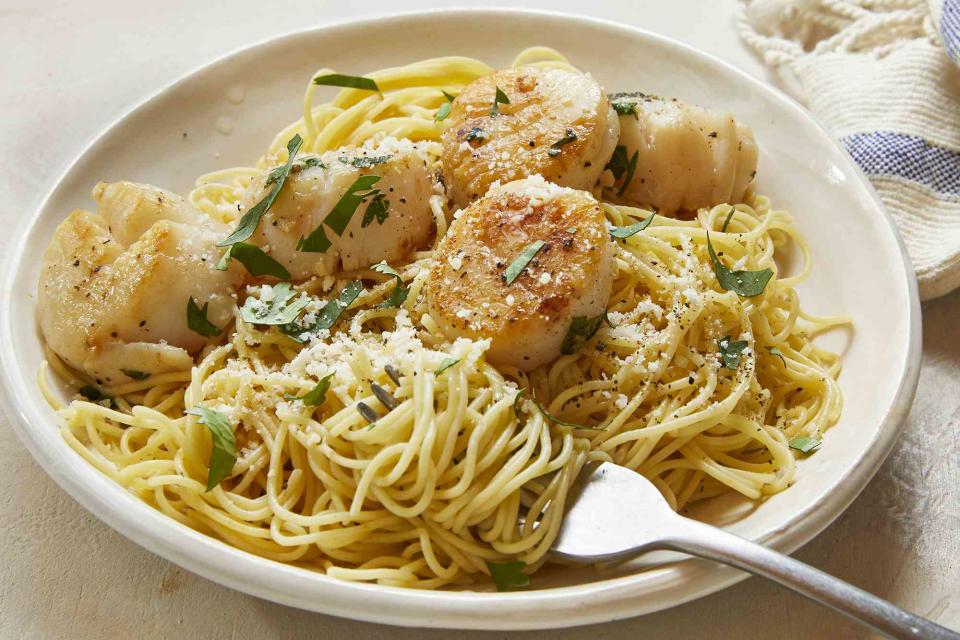How to Keep Pasta Noodles From Sticking Together
Learn how to avoid a sticky situation.

I'm always game for a mound of pasta. But what no one wants is an ACTUAL mound of pasta – one solidified mass you could pick up in one foul swoop with a fork. Or small stuck-together piles merely resting on top of the sauce they should be slathered in.
Learn how to avoid a gloopy mess and get the individually tender noodles you need. These tips will help you keep your pasta from sticking and skip straight to saucy satisfaction.
Related: 7 Fun Ways to Use Up Leftover Spaghetti
Does Adding Oil to Pasta Keep It From Sticking?
Like greasing a sticky door hinge, the natural solution would seem to be oil - either adding a bit to the pasta's water while it cooks or to the pasta itself. But unlike that hinge, this would be a mistake. Adding oil at any step in the process will solve the problem of sticking, but it won't be selective; the pasta won't stick to each other, and the sauce won't adhere to the pasta either. A sad situation indeed.
Ways to Keep Pasta From Sticking
Now that you've put the oil down slowly and backed away, here are 5 tips to keep your pasta stick-free.
Be sure to add pasta to boiling water.
No, I don't mean simmering. Keep going - it should be bubbling rapidly and steaming heartily. No matter how impatient your stomach might be making you for dinner, don't add it beforehand. It's a one-way ticket to a gummy ball of gluten.
Stir the pasta while it cooks.
The last thing you want is the pasta cooking adhered to each other. Give it a good stir once it gets in the water, and at least two more – one in the middle of the cook and one near the end. Some sources even say you should be stirring continuously for the first two minutes, but posting up near the stove for as much stirring as possible is a good move.
Related: 15 Essential Pasta Recipes That Everyone Should Know How to Make
Semolina is key.
Fresh dough releases moisture as it sits (the reason drying out pasta is so easy), which can irrevocably fuse the noodles together. You'll want to dust your sheets before and after you cut them.
Timing is crucial.
Aim to finish your sauce and noodles at the same time. Either the noodles will have to hang out in the colander while the sauce finishes, ensuring their fusing, or you might opt to leave them in the water longer, overcooking them. It's a lose/lose. Rinsing them in cold water in the colander is no good either, because all the lovely starch that helps the sauce adhere will be flushed down the drain.
Use enough water.
Pasta needs space to expand as it cooks. And the starch it releases makes the situation stickier. If there's not enough water for that starch to grow, it'll have no other choice than to make clumpy noodles. The recommendation is 3-4 quarts water for every pound of pasta and a pot big enough to handle the water and pasta without boiling over.

